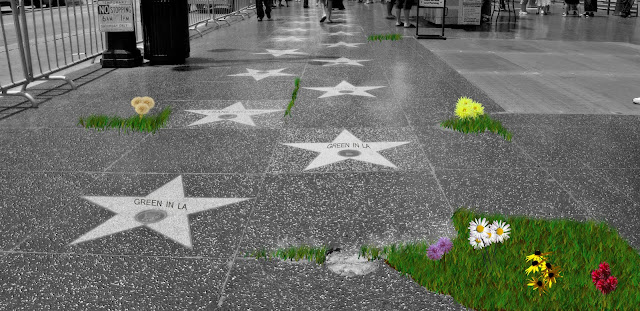 Reduce! Reuse! RECYCLE! Ah, a phrase that will never get old. REDUCE: your consumption. REUSE: everything you can. And, RECYCLE: hmm…wait! What can be recycled? Feeling confused by what you can and can’t recycle? Don’t fret my pet! I am here to help you sort out (both literally and figuratively) just what you can and cannot put in those blue bins:
Reduce! Reuse! RECYCLE! Ah, a phrase that will never get old. REDUCE: your consumption. REUSE: everything you can. And, RECYCLE: hmm…wait! What can be recycled? Feeling confused by what you can and can’t recycle? Don’t fret my pet! I am here to help you sort out (both literally and figuratively) just what you can and cannot put in those blue bins:Paper
All Clean Dry Paper
Computer, ledger, wrapping, arts and craft paper; unwanted mail, flyers, telephone books, note cards, newspaper, blueprints, magazines, file folders, paper bags, Post-it notes, catalogs and all
envelopes including those with “windows”
All Cardboard Boxes and Chipboard
Cereal, tissue, dry food, frozen food, shoe, and detergent boxes; paper towel and toilet rolls; and boxes broken down and flattened
Metals
All Aluminum, Tin, Metal, and Bi-Metal Cans*
Soda, juice, soup, vegetables, and pet food cans; pie tins; clean aluminum foil; empty paint and aerosol cans with plastic caps removed; and wire hangers
*Please rinse if possible
Glass
All Glass Bottles and Jars*
Soda, wine, beer, spaghetti sauce, pickle jars, etc.
*Please rinse if possible
All Clean Plastics 1 Through 7:
Numbers can usually be found on the side or bottom of your item's packaging (however, some items, such as Styrofoam to-go containers, may not have any markings) to indicate how you should recycle the item
Plastic #1: Polyethylene Terephthalate (PETE or PET)
This is the most common recycled plastic and includes, but is not limited to: soft drink bottles; water bottles; plastic peanut butter jars; and salad dressing bottles*
*Remember to remove all bottle tops before recycling
Plastic #2: High Density Polyethylene (HDPE)
Plastic milk cartons, juice bottles, shampoo bottles, and liquid detergent containers
Plastic #3: Polyvinyl Chloride (PVC) or Vinyl (V)
Plastic pipes and outdoor furniture
Plastic #4: Low Density Polyethylene (LDPE)
Dry cleaning bags, produce bags, trash can liners, food storage containers, bread and frozen food bags and plastic wrap
Plastic #5: Polypropylene (PP)
Bottle caps, drinking straws, ketchup bottles, and yogurt cups
Plastic #6: Polystyrene (PS)
Polystyrene contributes to more than four billion pounds of trash per year and includes:
Styrofoam peanuts; Styrofoam containers; takeout food containers; and plastic cutlery
*Before recycling packaging materials, however, consider bringing them to a shipping/packaging store, as many will reuse them.
Plastic #7: Other (this includes Polycarbonate (PC) and Polyactide (PLA))
Plastics made from renewable sources (i.e. sugarcane, corn and potato starch)
Below is a list of Non-Recyclable items:
Contaminated Paper
All soiled papers or bags with oils and food waste
Broken Glass
Window glass, mirror glass, auto glass, light bulbs, fluorescent lights and ceramics
Other Plastic
Plastic hygienic items, any electric or battery operated toys
Miscellaneous Materials
Coated milk cartons, electrical cords, cloth/fabric, appliances, mini blinds, kitchen utensils, lawn furniture, garden hoses, rubber tires, construction materials, including asphalt or concrete, wood and wood products
Hazardous Materials
Syringes, all partially filled aerosol cans and containers for cleaning fluids, automotive fluids, all batteries (including car batteries, household batteries, rechargeable batteries), pesticides, oil based paint, garden chemicals, and pool cleaners
*To find the nearest location that accepts Hazardous Materials, go to http://earth911.com/hazardous/ and type in your zip code or go to http://www.lacity.org/san/solid_resources/special/hhw/safe_centers/index.htm for different S.A.F.E. (Solvents/Automotive/Flammables/Electronics) locations set up by the City of Los Angeles Bureau of Sanitation)
While blue bins are provided to homeowners in and around the Los Angeles area, not all apartment /multifamily residential buildings have access to recycling bins. To remedy this situation, you may email multifamily@lacity.org with your property manager’s contact information and the City will contact him/her to enroll their property at his/her request. Keep in mind: there is NO cost to tenants to enroll in this program, so don’t be a lazy daisy and send in that request!
For more information on the City of Los Angeles Bureau of Sanitation recycling program, check out http://www.lacity.org/san/solid_resources/recycling/index.htm.
Happy recycling!










Nice post.
ReplyDeleteI agree with You.
I was writing about food and plastics onFOOD AND PLASTICS the other day.
There is some chart to see what plastic is more harmful than other.